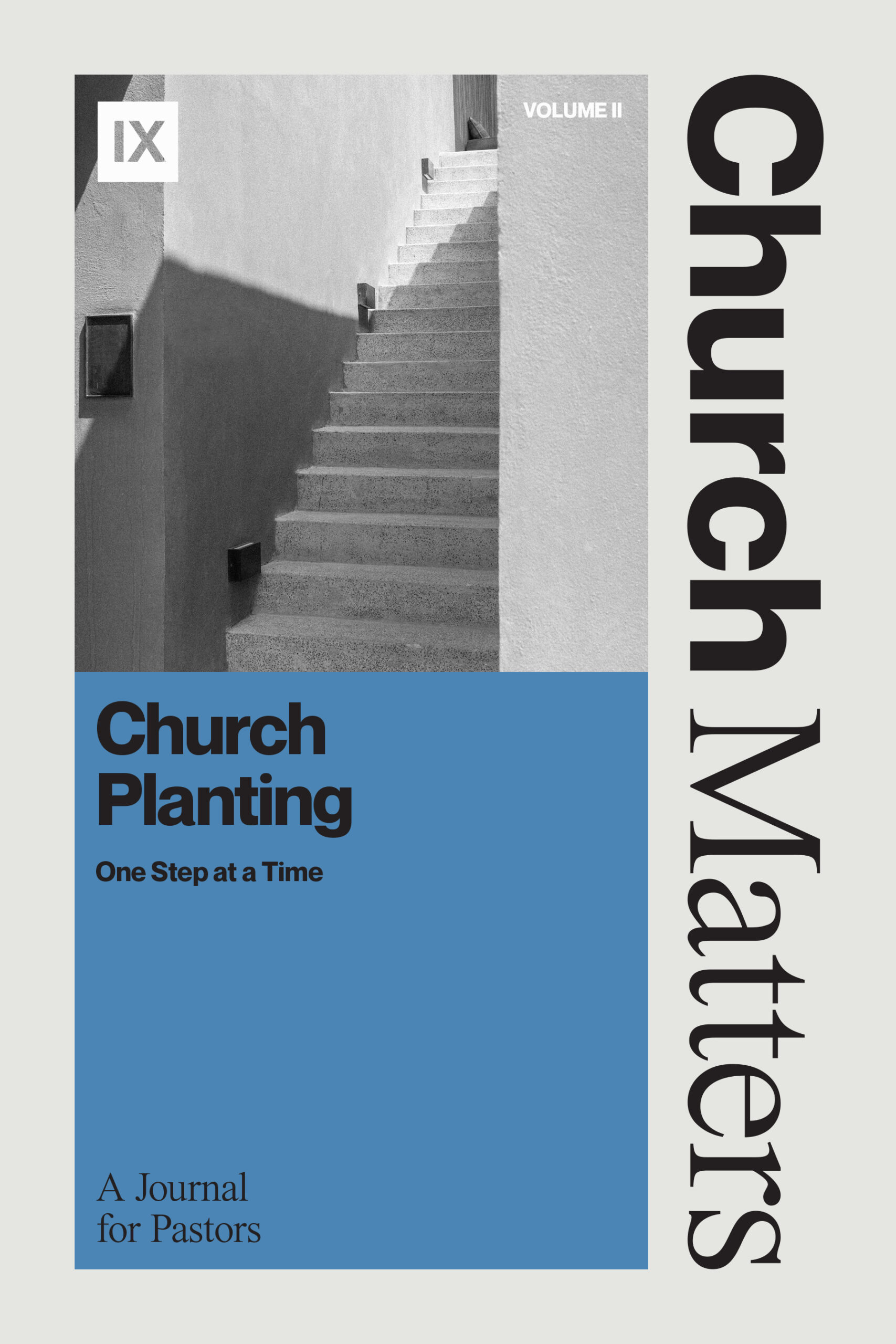Equipping Women for Church Planting
As I sat and scanned the faces of the women before me, I leaned back and smiled to myself. There sat a mix of female interns, apprentices, women’s workers, and ministry wives—all church plant core team members who were poised and ready to be taught this week’s session from our women’s ministry curriculum. It was glorious.
In the last fifteen years, I’ve been both amazed and frustrated as I’ve seen the global conversation on women’s ministry slowly move beyond the usual dialogue into action.
In the book Women’s Ministry in the Local Church, Ligon Duncan writes, “Some church leaders are so afraid of women assuming unbiblical roles in the church that they fail to equip them for the roles to which they have been indisputably called in the home and the church.”[1]
I have reflected on Ligon Duncan’s quote many times, wondering if this perpetual cycle of debate was in some way fueled by the paralyzing “fear” he identified. What has all this inaction cost?
Mez McConnell said, “The pastor is not seen as the only one who is qualified to minister among the flock he shepherds. That is a good thing, as one man cannot adequately take on this role. Even with a small church and multiple elders, we would struggle under the weight of pastoral issues in our congregation. Women . . . have a serious part to play in the kingdom of God. . . . They are not just bystanders.”[2]
Equipping women well and releasing them to serve surely benefits the home and church. Thankfully, I feel the tide turning as the tone of the discussion has started to change from “should we” to “how do we?” Even the existence of this article testifies to the shift. How do I tackle such an important topic? After much reflection, I want to highlight just three simple, yet foundational points.
Dispel the Myth of Longevity Equaling Maturity
Sometimes I’m like a broken record. One of my favorite recurring phrases is “Old doesn’t mean mature.” Sadly, we mistake the length of faith as some sort of measurement for maturity. This isn’t just a women’s issue; it’s a church member’s issue. Some who have been Christians for a long time are sadly immature. They might be a walking concordance and can quote Scripture and verse, but it turns out they are merely speakers of the Word and not doers.
The key to equipping well is to ensure you pick well in the first place. Think beyond the obvious usual suspects and watch out for those who show potential, are servant-hearted, and are teachable. You may even have to dispel your own presuppositions of the legendary “Proverbs 31” woman. She is quite literally proverbial. I repeat, the key to equipping well is to ensure you pick well in the first place.
Get the Structure Right
I recently wrote a book called Unconventional: A Practical Guide to Women’s Ministry in the Local Church. I spend a lot of time trying to explain how to create a robust women’s ministry that teaches and cares for the women in the church while remaining in glad submission to the elders.[3] Part of the answer is a well-thought-through structure. We have to grapple with hard questions like:
- What does confidentiality look like? When can it be broken?
- When do pastors get involved in a crisis involving sisters who are church members?
- What do we want our one-to-one discipling and evangelism framework to look like? Can women do one-on-with a man?
- What does our discipleship pathway look like? What books and study materials will we use?
- How do we prevent paternalism and dependency? Do we respond to a need with cash? How can we develop women’s ministry without it becoming independent of the church?
The list of questions is endless and some answers may differ depending on your context. Some of these questions are easier to answer than others but grappling with them and finding an answer will provide the foundational structure for what your women’s ministry will look like. This is key. Having a framework will equip the trained women on your core team, in time, to pass something on to the next generation of women.
No one wants random church members dancing to their own tune. In fact, a lack of structure may explain why some women’s ministry has previously headed in unhelpful directions. You don’t need to be a structural engineer to know that if the foundational structure isn’t right then the whole building’s integrity is compromised. That’s why building codes exist.
In some ways, all this is easier to deal with in a church plant. After all, you’ve got a piece of “new land” to build our foundation on and can start fresh. But whether you’re in a new or established church, careful structure is vital.
In our care team, we have eight women all with their own personalities. We all work within the same structural framework so that we pass on the same framework to the next generation, but we do so in our unique way. We sing the same tune but in different keys. Equipping well requires you to plan well.
Equip and Prepare for Service
I love thinking through ways to help stretch, grow, and see women step out of their comfort zone. I love teaching women how to cope or deal with hard conversations and problems without brushing them under the carpet. I’d like to tell you we teach them something fabulous and new but, truthfully, we simply teach Titus 2:3–4. Simple, biblical, and thought-through training has three key elements: Knowledge, Character, and Practice.
Knowledge. Over the last decade, we have developed several courses for women. Our goal is to deliver biblically robust teaching in a practical way. We talk about a vast array of topics:
- how feminism has shaped our world
- biblical submission
- women in leadership
- dealing with conflict
- what to do when men won’t lead
We have 22 basic sessions written and delivered by women. We teach in various ways: one-on-one, in small groups, online, in the classroom, and through books (even our own). I’ve been asked many times, “Can you come and train our women?” I’d love to be able to say yes, but time is limited. This encouraged us to create resources that we think can be helpful for any church. Our books Unexceptional and Unconventional each give a big-picture overview. We’re passionate to get good resources into the right hands so we also have created a companion resource (Unconventional: A Resource Guide). This includes all our foundational training sessions to download, tweak, and contextualize. It can be time-consuming and daunting to work through and create training to equip women. We may all learn in different ways, but we all need the same foundational information.
Character. “Search me, God, and know my heart; test me and know my anxious thoughts. See if there is any offensive way in me, and lead me in the way everlasting” (Psalm 139:23–24). Knowledge can be taught and skills can be improved, but character is a different story. As my wee mum would say: the proof is in the pudding. The Psalmist uses words like “search,” “test me,” and “see.” I know he was addressing the Lord, but there is a foundational pattern there to help us identify and recognize spiritual growth with prayer, discernment, and wisdom. To do this, we need an intentional and intensive discipleship framework. As godly, mature women invest in, disciple, and hold young women accountable, growth will be more evident, weaknesses will be identified and challenged, and women will be urged to cling to Christ.
Practice. We live in a target-driven world where people find their identity in achievements. Our churches should cultivate an environment where people can fail well. After all, we all fail. Some of our best lessons come from our biggest mistakes. We all need to grow and develop the skills needed for the roles God has given us. Many capable women I know get frustrated when teaching younger Christians new tasks because they make mistakes and don’t get everything right. Lots of times I hear, “I can do it quicker and better myself!” That may be true. But if we want to help them, we can’t do ministry for them. Short-term costs prepare us for long-term gains.
So again: our churches should offer opportunities for those who want to do ministry, even if that means we’re not always getting the “best” and most experienced people for every job. No one can excel in anything without experience. We all need experience and the opportunity to receive constructive help, even if that means we hear a few uncomfortable truths now and then. Equipping well requires the most experienced of you to patiently repeat with grace what someone needs to hear for the 100th time.
Conclusion
Recently at a conference, I was asked to highlight my take-home point. I said, “I want everyone to go away underwhelmed by what they hear. So underwhelmed they think, she hasn’t told me anything I don’t know and can’t do myself.” To be honest, I hope you say the same about this article. I would love you to get to this last sentence and be so underwhelmed by what you’ve read that you think, “This isn’t rocket science. With some thought and the right women on my team, we can do this.”
* * * * *
[1] Emphasis mine. Duncan, L and Hunt, S. Women’s Ministry in the Local Church. (Crossway, 2006). 22.
[2] McConnell, Mez. https://20schemesequip.com/why-my-first-church-hire-was-a-woman-and-why-yours-should-be-too/ or
A version of this foreword appears in Mez McConnell, The Least, the Last and the Lost, part IV, chapter 3 (EP, 2021).
[3] Dickens, Sharon. Unconventional. A Practical Guide to Women’s Ministry in the Local Church. 10Publishing, Great Britain, 2023. 17









